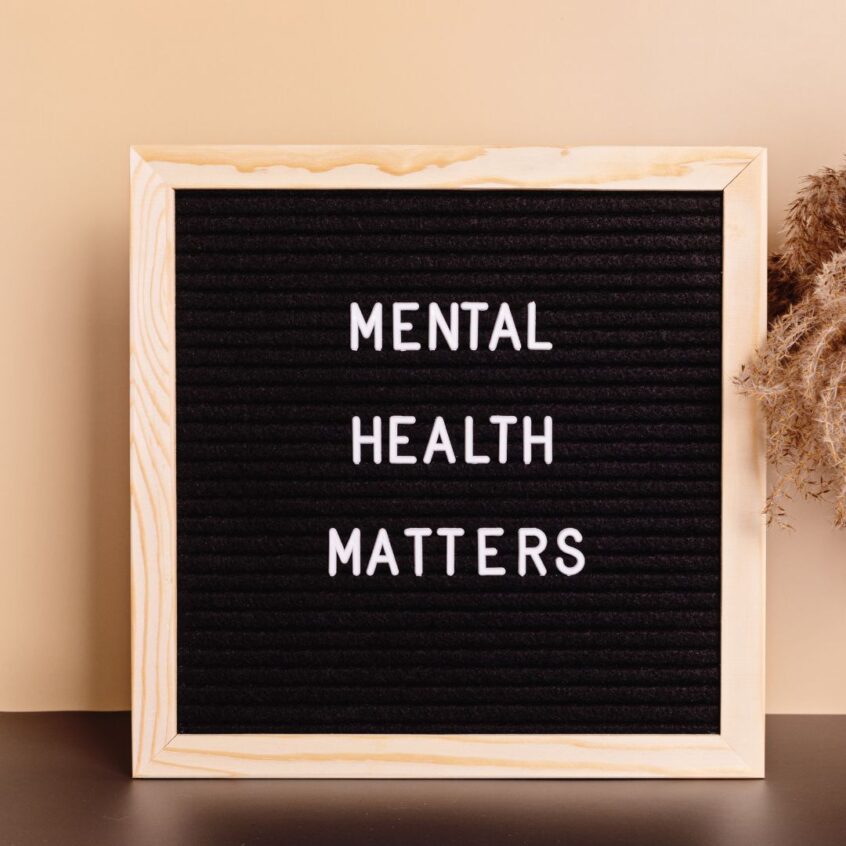As we observe International Mental Health Day, it’s important to recognize the many ways mental health affects our overall well-being, including our vision. Stress and anxiety, two prevalent mental health challenges, can have a significant impact on eye health, often leading to discomfort or even more serious issues. Understanding these effects can help you take better care of both your mental health and your vision.
The Connection Between Mental Health and Vision
The eyes are sensitive organs that can react to the body’s overall state of health. Mental health, particularly stress and anxiety, can trigger a variety of eye-related symptoms. While these symptoms may not always signal a severe eye condition, they can still affect quality of life.
Common Eye Symptoms Related to Stress and Anxiety:
- Eye Strain: When we are stressed or anxious, we may unknowingly engage in behaviors like excessive screen time, eye rubbing, or squinting. These habits can lead to eye strain, causing discomfort, blurred vision, and headaches.
- Occasional Dry Eyes: Anxiety and stress can interfere with normal tear production. You may notice your eyes becoming dry, irritated, or red during periods of prolonged stress. This can be exacerbated by excessive screen use or exposure to dry environments.
- Eye Twitching (Myokymia): One of the most noticeable eye-related symptoms of stress is involuntary eye twitching, known as myokymia. While typically harmless, it can be annoying and may worsen with continued stress.
- Blurred Vision: Stress and anxiety can increase the body’s production of cortisol, the stress hormone. Elevated cortisol levels may temporarily disrupt vision by affecting the eye muscles, leading to blurred or double vision.
- Light Sensitivity: During periods of high stress, your eyes may become more sensitive to light, a condition known as photophobia. This increased sensitivity can cause discomfort when exposed to bright lights or computer screens.
- Visual Hallucinations or “Visual Snow”: In extreme cases, individuals with severe anxiety or panic disorders may experience visual disturbances, such as seeing static-like images or flashing lights. Although rare, these symptoms highlight how deeply mental health can influence vision.
The Long-Term Effects of Chronic Stress on Eye Health
While occasional stress is a normal part of life, chronic stress and anxiety can have more lasting effects on eye health. Prolonged stress can contribute to high blood pressure, which in turn may increase the risk of developing serious eye conditions, including glaucoma and retinopathy. Research has also suggested a connection between chronic stress and the development of age-related macular degeneration (AMD)(Verywell Health)(Ophthalmology Times).
How to Manage Stress for Better Eye Health
- Practice Mindfulness: Techniques like meditation, deep breathing, and yoga can help reduce stress levels and, in turn, lessen its impact on your eyes. These practices encourage relaxation and may alleviate symptoms such as eye strain or dry eyes.
- Limit Screen Time: Prolonged exposure to screens can exacerbate the effects of stress on your eyes. Implementing the 20-20-20 rule—looking at something 20 feet away for 20 seconds every 20 minutes—can help alleviate eye strain during screen use.
- Regular Exercise: Physical activity is one of the most effective ways to reduce stress. Exercise improves circulation and helps reduce tension, which can benefit both your mental health and your vision.
- Stay Hydrated: Dehydration can make dry eyes worse, so drinking plenty of water throughout the day can help maintain proper tear production and keep your eyes comfortable.
- Seek Professional Help: If you experience persistent eye symptoms or severe anxiety, it’s important to seek advice from a healthcare provider. Treating the underlying stress or anxiety may relieve the associated eye symptoms.
Conclusion
On International Mental Health Day, it’s essential to recognize how closely connected mental and physical health are. Stress and anxiety are more than emotional burdens—they can manifest in physical symptoms that affect our vision. By taking steps to manage stress and practicing self-care, you can protect both your mental health and your eye health, ensuring that you maintain clear vision and a healthier state of mind.

References:
- American Academy of Ophthalmology, “How Stress and Anxiety Affect Your Eyes”
- Healthline, “Anxiety and Vision: Can Anxiety Affect Your Eyes?”
- Verywell Mind, “Stress and Eye Problems: How Are They Linked?”
